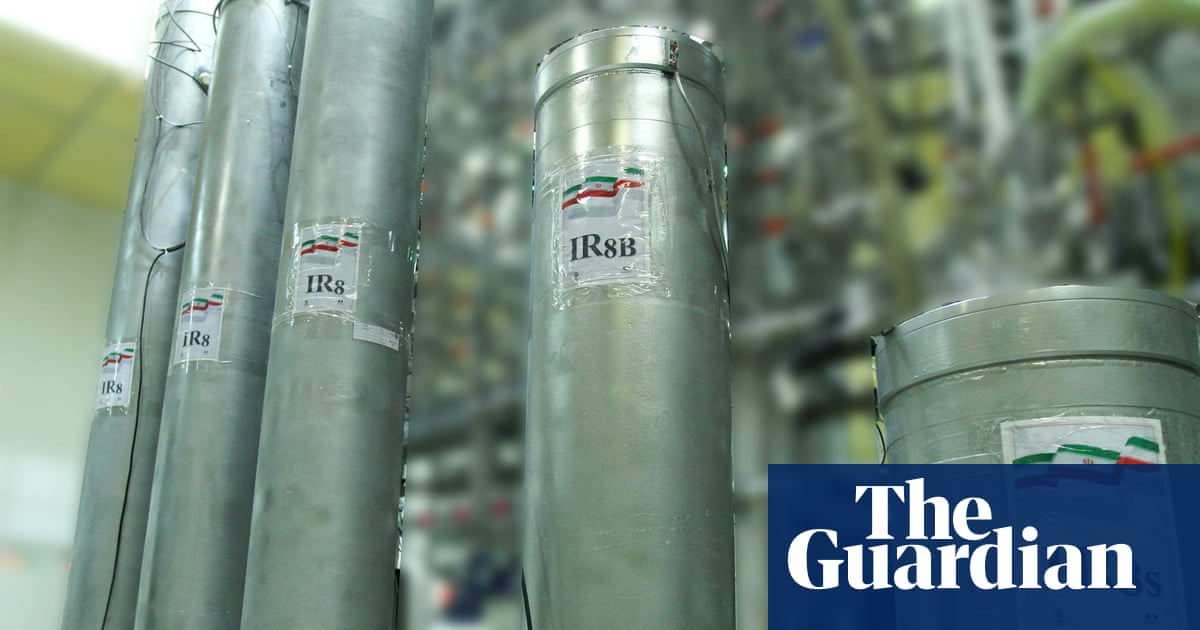
Increasingly cut off from the world, Iran’s protesters face a difficult winter. Around them, nooses are tightening.
Domestically, communications are monitored or cut off. From the outside, it is difficult to be in touch at all. Some foreigners, desperate to keep up with the events in Iran and their friends and relatives, have resorted to informal means of communication rather than email and social media — all of which are heavily censored and curtailed.
The BBC found some who were using the online servers of multiplayer video games, which the Iranian regime has so far left alone, to share news of those in danger or under threat. These loopholes are inventive, but now that they have been reported on they are likely to be similarly closed.
Other nooses closing around protesters’ necks are more literal. Iran has executed a number of demonstrators already and sentenced an unknown but growing number to death — most on fabricated murder charges, but the head of the country’s judiciary has indicated that merely joining protests would be considered by Iran’s courts to be akin to a capital offense.
Relatives of and campaigners for political prisoners in Iran describe a hellish situation: Those who have been arrested are forced through the courts at a relentless pace, with virtually no argument, no time to prepare a defense and no chance to convince the courts of their innocence. Another BBC investigation found that demonstrators had as little as 15 minutes to try to clear themselves of a capital crime, with their lives at risk and in the balance.
This is not justice. It is a farce. And it is something much of the world is beginning to take notice of and condemn.
Across Europe, countries are beginning to reevaluate their relationships with Iran. Many former parties to the abortive nuclear deal have been honestly disgusted by the way Iran has repressed protests and the extent to which the nuclear deal bought the military and the Islamic Revolutionary Guard Corps the time, and gave it the funds, to prepare for this murderous crackdown.
Other European states are concerned that the repression of the demonstrations proves that Iran has been captured by a faction of hard-liners — intolerantly theological and violent in word and deed — who cannot be negotiated with. Many consider this the total repudiation of what they had hoped to foster within Iran. They therefore consider proscribing the Revolutionary Guards and refusing to act as Iran’s interlocutor within Europe.
Many former parties to the abortive nuclear deal have been honestly disgusted by the way Iran has repressed protests.
Dr. Azeem Ibrahim
The effect this has had on policy is correct and reasonable. But this is in part built on an error in category. Those running the Iranian state are not dramatically more hard-line or violent than earlier leaders and administrators. The supreme leader continues to wield immense spiritual and political power, both of which serve ultimately to guide the nature of governance on the “permanent Islamic revolutionary” footing pioneered by Ayatollah Khomeini from 1979.
The Revolutionary Guards maintain their strong position, not only as protectors of the permanent revolution and as a transnational subversion force, but also as serious agents within Iran’s economic and political systems, advocating for what they always advocated: Their view of the Islamic revolution.
Iran’s revolution always intended for it to oppose the democracies and their Middle Eastern allies and partners, and to wage unceasing struggle against the forces of capital and secularism, Israel and Sunni Islam in that spirit.
The hard-liners have not taken over for the simple fact that they were always in charge. They remain in charge to this day and the Iranian reaction to the protest movement has shown their teeth — and their continuing power.
As European and American policymakers contemplate ways to sanction the Iranian regime and show their displeasure at its brutality, they must remember two things. The first is the fundamental revolutionary nature of the regime, which exults in righteous violence and can never be expected to deescalate in the face of a threat to the Islamic revolution. And the second is the dangerous situation faced by demonstrators; as winter closes in, the arms of the state grow more confident in their means of repression and the wider world seems further away by the day.
• Dr. Azeem Ibrahim is director of special initiatives at the Newlines Institute for Strategy and Policy in Washington D.C. and the author of “The Rohingyas: Inside Myanmar’s Genocide” (Hurst, 2017). Twitter: @AzeemIbrahim












